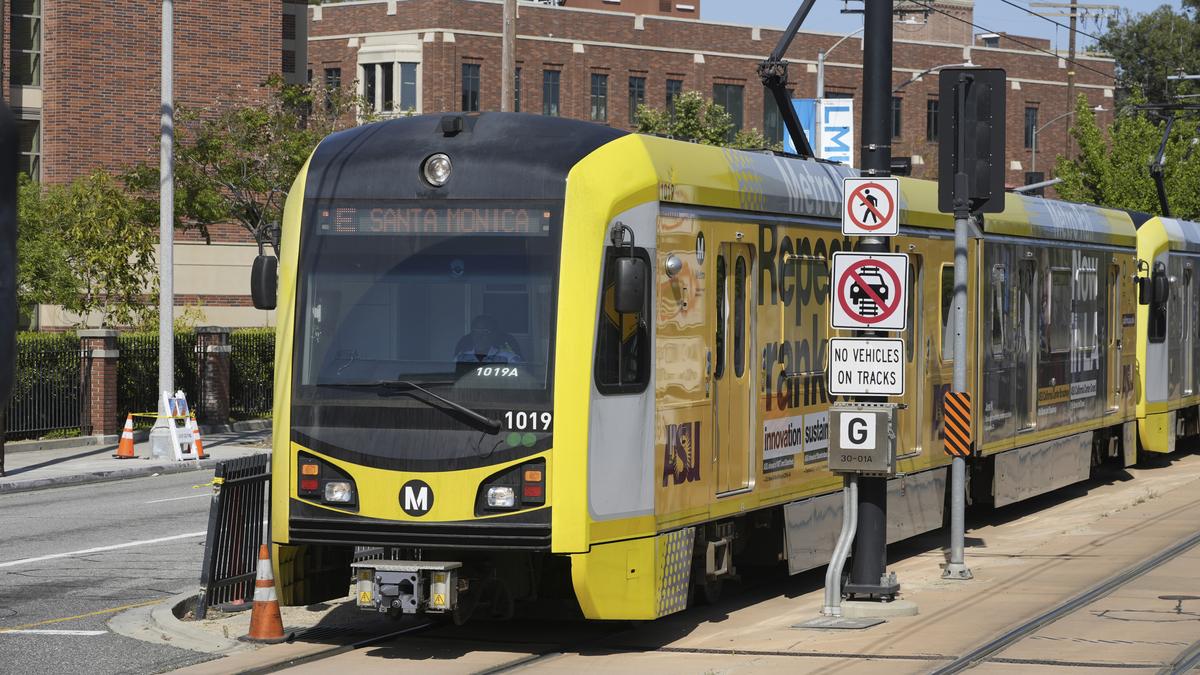
California to tap generative AI tools to increase services access, reduce traffic jams
The Hindu
California could soon deploy generative artificial intelligence tools to help reduce traffic jams, make roads safer and provide tax guidance.
California could soon deploy generative artificial intelligence tools to help reduce traffic jams, make roads safer and provide tax guidance, among other things, under new agreements announced Thursday as part of Gov. Gavin Newsom’s efforts to harness the power of new technologies for public services.
The state is partnering with five companies to create generative AI tools using technologies developed by tech giants such as Microsoft-backed OpenAI and Google- and Amazon-backed Anthropic that would ultimately help the state provide better services to the public, administration officials said.
“It is a very good sign that a lot of these companies are putting their focus on using GenAI for governmental service delivery," said Amy Tong, secretary of government operations for California.
The companies will now start a six-month internal trial where the tools are tested and evaluated by state workers. The companies will be paid $1 for their proposals. The state, which faces a significant budget deficit, can then reassess whether any tools could be fully implemented under new contracts. All the tools are considered low risk, meaning they don’t interact with confidential data or personal information, an administration spokesperson said.
(For top technology news of the day, subscribe to our tech newsletter Today’s Cache)
Newsom, a Democrat, touts California as a global hub for AI technology, noting 35 of the world's top 50 AI companies are located in the state. He signed an executive order last year requiring the state to start exploring responsible ways to incorporate generative AI by this summer, with a goal of positioning California as an AI leader. In January, the state started asking technology companies to come up with generative AI tools for public services. Last month, California was among one of the first states to roll out guidelines on when and how state agencies could buy such tools.
Generative AI, a branch of AI that can create new content such as text, audio and photos, has significant potential to help government agencies become more efficient but there's also an urgent need for safeguards and oversight to limit risks, state officials and experts said. In New York City, an AI-powered chatbot created by the city to help small businesses was found to dole out false guidance and advise companies to violate the law. The rapidly growing technology has also raised concerns about job loss, misinformation, privacy and automation bias.

“Writing, in general, is a very solitary process,” says Yauvanika Chopra, Associate Director at The New India Foundation (NIF), which, earlier this year, announced the 12th edition of its NIF Book Fellowships for research and scholarship about Indian history after Independence. While authors, in general, are built for it, it can still get very lonely, says Chopra, pointing out that the fellowship’s community support is as valuable as the monetary benefits it offers. “There is a solid community of NIF fellows, trustees, language experts, jury members, all of whom are incredibly competent,” she says. “They really help make authors feel supported from manuscript to publication, so you never feel like you’re struggling through isolation.”

Several principals of government and private schools in Delhi on Tuesday said the Directorate of Education (DoE) circular from a day earlier, directing schools to conduct classes in ‘hybrid’ mode, had caused confusion regarding day-to-day operations as they did not know how many students would return to school from Wednesday and how would teachers instruct in two modes — online and in person — at once. The DoE circular on Monday had also stated that the option to “exercise online mode of education, wherever available, shall vest with the students and their guardians”. Several schoolteachers also expressed confusion regarding the DoE order. A government schoolteacher said he was unsure of how to cope with the resumption of physical classes, given that the order directing government offices to ensure that 50% of the employees work from home is still in place. On Monday, the Commission for Air Quality Management in the National Capital Region and Adjoining Areas (CAQM) had, on the orders of the Supreme Court, directed schools in Delhi-NCR to shift classes to the hybrid mode, following which the DoE had issued the circular. The court had urged the Centre’s pollution watchdog to consider restarting physical classes due to many students missing out on the mid-day meals and lacking the necessary means to attend classes online. The CAQM had, on November 20, asked schools in Delhi-NCR to shift to the online mode of teaching.









